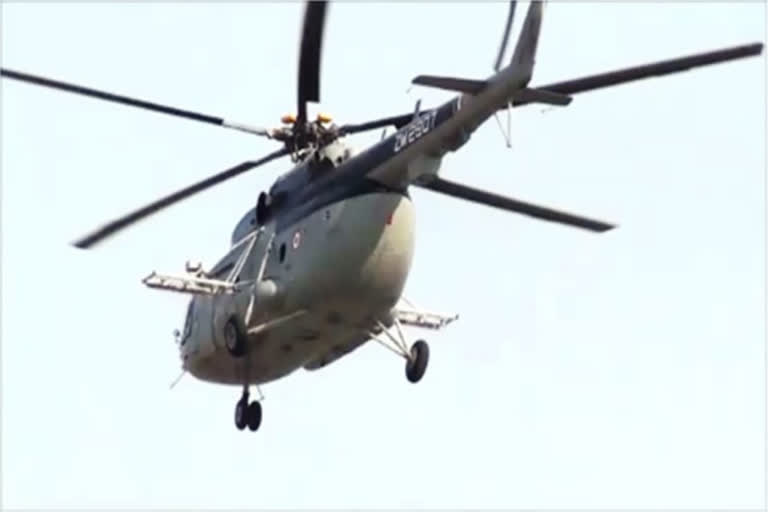New Delhi:Anticipating Locust attack, the Ministry of Agriculture had signed a contract with M/s Micron, the UK to modify two Mi-17 Helicopters for spraying atomized pesticide to arrest Locust breeding in May 2020. But due to COVID-19 pandemic, the UK based firm would be able to manufacture and supply the modification kit to IAF only from Sep 2020 onward for system integration and testing. In the meanwhile, an unprecedented Locust attack that started manifesting from last week of May has been spreading fast across many States.
In view of the envisaged delay in provisioning of modification kits by M/s Micron, the Indian Air Force tasked No. 3 Base Repair Depot located at Chandigarh to undertake the challenging task of indigenously designing and developing an Airborne Locust Control System (ALCS) for Mi-17 helicopters. Using all indigenous components, the atomized airborne spraying of pesticide has been successfully achieved in air through a configuration of nozzles mounted on both sides on external trusses of a Mi-17 helicopter. The nozzles used for the purpose are a mix of commercially available nozzles as well as the nozzles developed by CSIO, Chandigarh.
The pesticide Malathion in appropriate concentration would be filled in the internal Auxiliary tank of 800 litres capacity fitted inside the helicopter and pumped into the nozzles by using an electrical pump as well as compressed air, achieving nearly 40 minutes of spaying duration in the infected zone covering an area of approximately 750 hectares in each mission.
